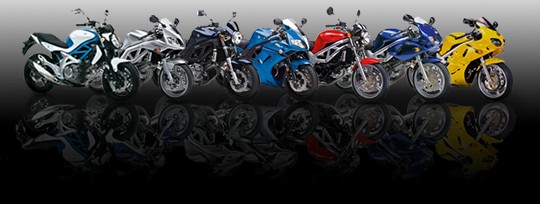 |
 |
|
|
#21 | |
|
Guest
Posts: n/a
|
Quote:
. |
|

|
|
|
#22 | |
|
Guest
Posts: n/a
|
Quote:
|
|

|
|
|
#23 |
|
Guest
Posts: n/a
|
Yes but I was referring to the difference between the 650 and 1000, suggesting that one is much higher geared than the other would make a difference to the engine braking.
. |

|
|
|
#24 | ||
|
Guest
Posts: n/a
|
Quote:
It's got to be down to crank case pumping. |
||

|
|
|
#25 |
|
Guest
Posts: n/a
|
engine braking is not caused by frictional losses, it's all pulling vaccum thru the intake
|

|
|
|
#26 | |
|
Member
Mega Poster
Join Date: Jan 2004
Location: Whyteleafe
Posts: 3,395
|
Quote:
Having said that, there is also perception. For eg the braking force of a hayabusa engine or an SV1000 might be greater than an SV650, its just that the bike is also heavier so the actual deceleration caused is less. Most people notice a reduction in engine braking when the exhaust is changed for an aftermarket can. Hence the SV1000 probably has a much less restrictive exhaust as it has twin pipes, which may also be a contributory factor. I still can't see why an IL4 should have less braking than a v-twin. The vacuum pulled against a closed throttle per revolution should be the same, even though its split into 2 cylinders instead of one, given an engine of similar bore/stroke/capacity/compression ratio etc etc. If anyone can give a definitive explanation of why this is so, i would appreciate it. Also, how does the engine braking of a parallel twin compare to a V?
__________________
Silver SV650SK3, Fuel exhaust |
|
|
|

|
|
|
#27 |
|
Guest
Posts: n/a
|
think about vacuum, and a closed throttle, but the throttle is never completly closed, there is alwasy enuf air comming in for a idle, some engines have more airflow at an idle
raise your idle speed and you will loose some engine braking |

|
|
|
#28 | |
|
Member
Mega Poster
Join Date: Jan 2004
Location: Whyteleafe
Posts: 3,395
|
Quote:
__________________
Silver SV650SK3, Fuel exhaust |
|
|
|

|
|
|
#29 | ||
|
Guest
Posts: n/a
|
Quote:
|
||

|
|
|
#30 | |
|
Member
Mega Poster
Join Date: Jan 2004
Location: Whyteleafe
Posts: 3,395
|
Quote:
__________________
Silver SV650SK3, Fuel exhaust |
|
|
|

|
 |
|
|
 Similar Threads
Similar Threads
|
||||
| Thread | Thread Starter | Forum | Replies | Last Post |
| Engine Breaking? Hopefully not. Engine braking - is that OK? | butterick99 | SV Talk, Tuning & Tweaking | 14 | 12-09-09 10:31 PM |
| Engine braking... any hazzards engine wise? | John 675 | SV Talk, Tuning & Tweaking | 21 | 28-03-08 07:20 PM |
| Engine braking | Lakes_Puma | SV Talk, Tuning & Tweaking | 18 | 02-06-07 02:30 PM |
| engine braking on the sv! | kwak zzr | SV Talk, Tuning & Tweaking | 11 | 25-04-06 12:01 PM |
| Braking an engine | svrash | For Sale - SV's and SV related items | 1 | 22-03-06 10:43 AM |